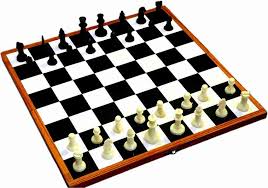Chess Game, often referred to as “the game of kings,” is one of the oldest and most intellectually challenging board games in the world. With its origins dating back over a millennium, chess has evolved into a symbol of strategy, skill, and deep thought. This article explores the fundamentals of chess, its history, strategies, and its cultural significance across the globe.
The Basics of Chess
The Objective
The primary objective of chess is to checkmate your opponent’s king. This means putting the king in a position where it cannot escape capture on the next move. Each player starts with 16 pieces, and the game is played on an 8×8 board with alternating light and dark squares.
The Pieces
Each player has the following pieces, each with unique movements:
- King: Moves one square in any direction. The king is the most crucial piece; if it is checkmated, the game is over.
- Queen: The most powerful piece, moving any number of squares in any direction.
- Rooks: Move any number of squares horizontally or vertically.
- Bishops: Move any number of squares diagonally.
- Knights: Move in an “L” shape—two squares in one direction and then one square perpendicular.
- Pawns: Move forward one square, with the option to move two squares on their first move. They capture diagonally.
The Chessboard
The chessboard consists of 64 squares arranged in an 8×8 grid. Each player’s pieces are set up on the two rows closest to them. The white pieces are placed on the first two rows, and the black pieces occupy the last two rows.
A Brief History of Chess
Chess has a rich and fascinating history that spans cultures and centuries:
Origins
- Early Beginnings: The game is believed to have originated in India around the 6th century AD, known as Chaturanga. It spread to Persia and became Shatranj.
- Medieval Europe: Chess made its way to Europe in the Middle Ages, evolving in terms of rules and pieces. By the 15th century, the modern moves for the queen and bishop were established.
The Rise of Competitive Chess
- 19th Century: The first official chess tournament was held in London in 1851, marking the beginning of organized competitive chess.
- World Chess Championship: The first official World Chess Championship took place in 1886, establishing a tradition of elite competition.
Chess Strategies
Chess is a game of strategy, and successful players must employ various tactics to outmaneuver their opponents:
Opening Principles
- Control the Center: Dominating the central squares allows for better piece mobility.
- Develop Your Pieces: Getting knights and bishops into play early can create threats against your opponent.
- King Safety: It’s crucial to safeguard your king, often by castling early in the game.
Middlegame Tactics
- Tactics: Players often rely on tactics like forks, pins, and discovered attacks to gain an advantage.
- Positioning: Good positioning of pieces can lead to powerful combinations and control of key squares.
Endgame Strategies
- Simplifying: If ahead in material, exchanging pieces can lead to a winning endgame.
- Promotion: Advancing a pawn to the eighth rank allows it to be promoted to a queen or another piece, often leading to a decisive advantage.
The Cultural Significance of Chess
Chess has transcended its status as a mere game, influencing culture, literature, and even politics:
Intellectual Pursuit
Chess is often viewed as a mental sport, emphasizing cognitive skills such as problem-solving, critical thinking, and patience. It has been embraced by educational institutions as a tool for developing analytical skills among students.
Chess in Popular Culture
Chess has made its mark in literature and film, with notable examples like:
- “The Queen’s Gambit”: A Netflix series that gained immense popularity, following the life of a chess prodigy.
- Chess in Literature: Various authors, including Nabokov and Dostoevsky, have referenced chess to explore complex themes of strategy and human nature.
International Competitions
Chess has a vibrant competitive scene, with international tournaments attracting the best players from around the world. The World Chess Championship remains the pinnacle of achievement in the chess community.
The Digital Revolution
With the advent of technology, chess has reached new heights:
Online Chess Platforms
Websites like Chess.com and Lichess.org have made chess more accessible than ever. Players can compete against others globally, participate in tournaments, and analyze games with powerful engines.
Chess Software
Advanced chess engines, such as Stockfish and AlphaZero, have revolutionized how players analyze their games and prepare for opponents. These tools have pushed the boundaries of understanding in chess strategy.
Conclusion
Chess is not just a game; it is a timeless battle of wits that has captured the imaginations of people across cultures and generations. Its rich history, strategic depth, and cultural significance continue to inspire players worldwide. Whether played casually in a park or intensely in a tournament, chess remains a fascinating pursuit that celebrates intellectual skill and strategic thinking. As it continues to evolve in the digital age, chess will undoubtedly remain a beloved game for years to come.




